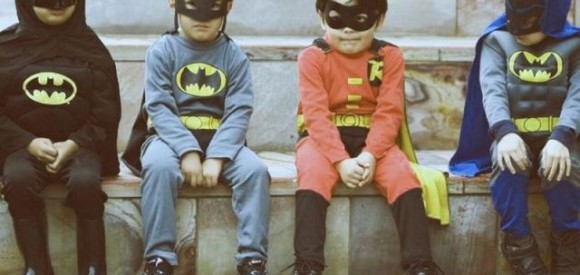Ordinary Beginnings, Extraordinary Journeys.
by Shana Merlin
I was teaching Improv 401 the other day and we were doing our class on what I call “Nothing, Nothing, Something.” The idea is to prevent anything “interesting” or novel happening at the top of the scene. So I have someone get onstage and show us their routine for reading a book at home. This goes on for a minute or two, quite a while in stage-time. We see her turn on her lamp, tuck herself into bed, thumb through some pages and twirl her hair. To the performer’s astonishment, the audience is delighted to sit and watch a relaxed performer go through the details of their day.
Part of this is because we have all seen thousands of scenes—in movies, books, TV, and even live theater. And we know from experience that this normal, routine stuff is the introduction for something special happening. It’s counterintuitive as a beginning storyteller, but this everyday action—reading a book, washing the dishes, standing in line at the grocery, really just creates tension and suspense for what is about to come. And we know it is about to come. Bad stuff always does.
It’s just like that tension you have at the movies when things are too going well for a character. You know the other shoe is just about to drop.
In improv scenes, because people are often panicked and rushing to make things happen, you rarely get to see these kinds of ordinary interactions. A pleasant morning breakfast for a couple. An agreeable job interview. A family happily setting the table for dinner. But when you do, not only is it a lovely break to spend time in a theater with characters actually being nice to each other—still a rarity on the improv stage–but you also can’t wait to see what kind of bomb is going to be dropped in to their lives. When you see the kids playing nicely in the backyard at the barbecue, you just know the aliens are about to land.
When I teach this day of storytelling and we do routine scene starts of brushing teeth and potting plants, the most fantastical stories often arise. In fact, what came in to clarity for me on Saturday is that the more normal the beginning of the story, the more fantastical the middle seems to be.
When our player was reading her book at home and, after a few page turns, a key fell out, our minds were racing with exotic explanations. A gun safe. A door to a magical world in the wardrobe. The love letters and keepsakes of an ancient relative. A treasure chest!
To get to extraordinary places it’s best to start with the most ordinary of circumstances. Otherwise you get sucked in to the minutia of the scene. If you are looking for the first possible conflict—the book is stuck on the shelf and won’t come off, the bed is uncomfortable, or the light switch broken—you never get to the bigger idea.

Founder, Merlin Works


Oh, man…I’m going to use this on stage next Tuesday:)
Let me know how it goes! I’m curious to see how that Merlin Works training works up in Chicago…